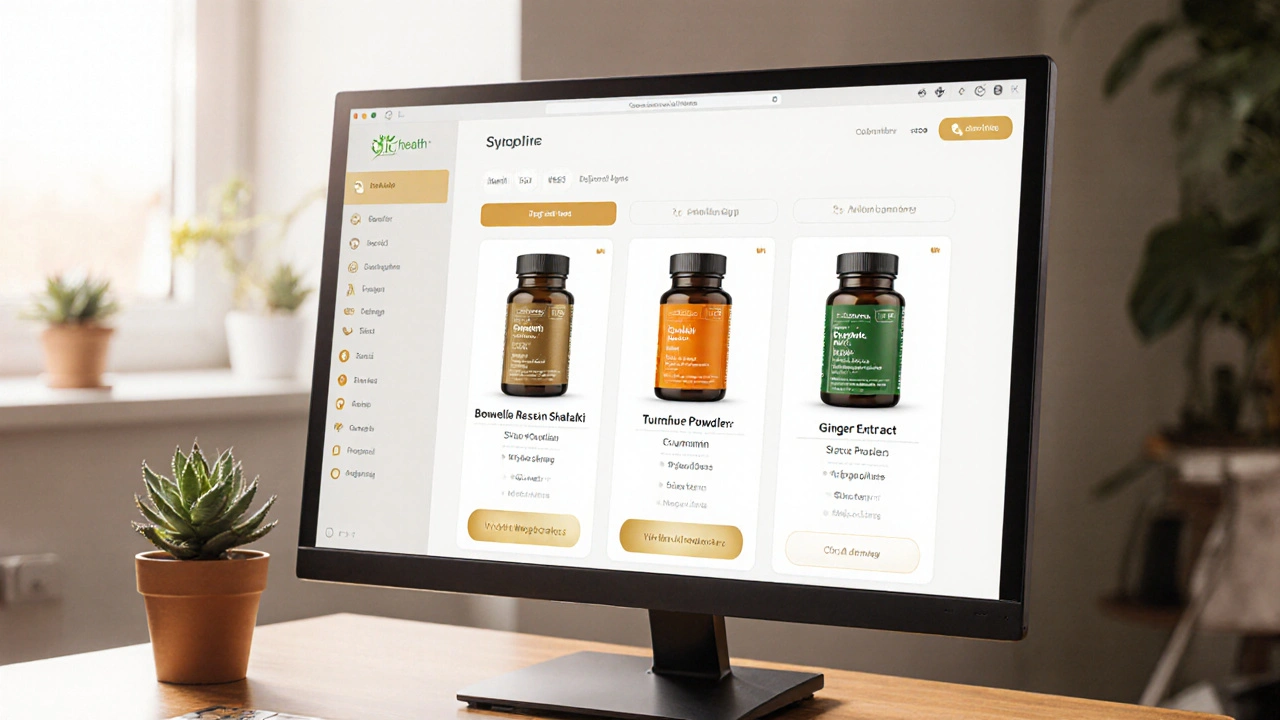Shallaki (Boswellia Serrata): What It Is and Why It Matters
If you’ve ever searched for a natural way to calm joint pain, you’ve probably come across the name Shallaki. Also called Boswellia serrata, this resin comes from the bark of a tree native to India and parts of the Middle East. People have used it for centuries in Ayurvedic medicine, and modern research is starting to back up many of those claims.
In short, Shallaki is a herbal extract that contains compounds called boswellic acids. Those acids are thought to block inflammatory pathways in the body, which is why the herb is often linked to reduced swelling and pain. If you’re looking for a supplement that might help your knees, back, or even your gut, Shallaki is worth a closer look.
Key Benefits and How It Works
Most users take Shallaki for joint support, and the evidence lines up with that use. Studies show boswellic acids can inhibit an enzyme called 5‑LOX, a major driver of inflammation. By dialing down that enzyme, the supplement may lower the production of prostaglandins that cause pain and swelling.
Beyond joints, some research suggests Shallaki might help with:
- Digestive discomfort – especially in conditions like ulcerative colitis.
- Respiratory health – easing asthma symptoms by reducing airway inflammation.
- Skin health – soothing redness and irritation when applied topically.
The common thread is the anti‑inflammatory action. If you’re already using NSAIDs (like ibuprofen) and worry about stomach upset, Shallaki could be a gentler alternative, though you should always talk to a doctor before swapping meds.
How to Use Shallaki Safely
When you shop for Shallaki, look for extracts standardized to contain at least 30% boswellic acids. Capsules are the most convenient form, but you’ll also find powders and tinctures. A typical dose ranges from 300 mg to 500 mg taken two to three times a day. Start with the lower end to see how your body reacts.
Here are a few practical tips:
- Take with food. This reduces the chance of minor stomach irritation.
- Check for interactions. If you’re on blood thinners, asthma meds, or diabetes drugs, consult your clinician first.
- Watch for side effects. Most people only experience mild nausea or a dry mouth. Stop use and seek advice if you notice rash, dizziness, or worsening pain.
- Stay consistent. Benefits often appear after several weeks of regular use, not overnight.
Pregnant or breastfeeding women should avoid Shallaki unless a health professional says it’s okay. Children under 12 also need professional guidance before trying the supplement.
Finally, quality matters. Choose reputable brands that provide third‑party testing results. Cheap, unverified products might contain filler or lower levels of the active compounds, which defeats the purpose of taking the supplement.
Whether you’re dealing with aching knees, a stubborn gut issue, or just want to add a natural anti‑inflammatory to your routine, Shallaki offers a well‑researched option that’s easy to incorporate. Start with a modest dose, monitor how you feel, and keep the conversation open with your healthcare provider. In many cases, that simple approach can bring noticeable relief without the side effects of stronger drugs.
Shallaki (Boswellic Acid) vs. Natural Alternatives: Detailed Comparison
Compare Shallaki (Boswellic Acid) with top anti‑inflammatory alternatives, see evidence, safety, cost and pick the right supplement for your needs.
